Book Box: How Independent is Serena Williams?
“If I were a guy, I wouldn’t be writing this”, says Serena Williams, in a resignation note that has gone viral.
Everything that Williams says, bears reading about, as we engage with political, social and cultural independence and this most important of all – biological independence.
On the occasion of India’s 75th Independence anniversary, here are four books from different parts of the world, that investigate the contradictory pulls and pushes of independence.
Book 1 of 4: Competitive independence vs Biological independence
Serena Williams sent me back to Anne-Marie Slaughter, who made the news in 2012, by famously declaring women couldn’t have it all – that financial independence came at the cost of biological independence. “Something happens, and the carefully constructed balance suddenly tips. For many women, that something is the birth of a second child. Law firms and businesses are well acquainted with the “second child syndrome” where suddenly a talented woman who was making it work with one child, can no longer work full-time or at the same job with two children” she says in Unfinished Business. Slaughter zones onto the zeitgeist of today’s times, when she identifies two competing drives for women – that of competition versus caregiving – a contradiction that emerges sharply and dramatically in the Serena Williams story. Slaughter adds to her analysis, with practical solutions – read her book to discover these.
Book 2 of 4: Economic Independence
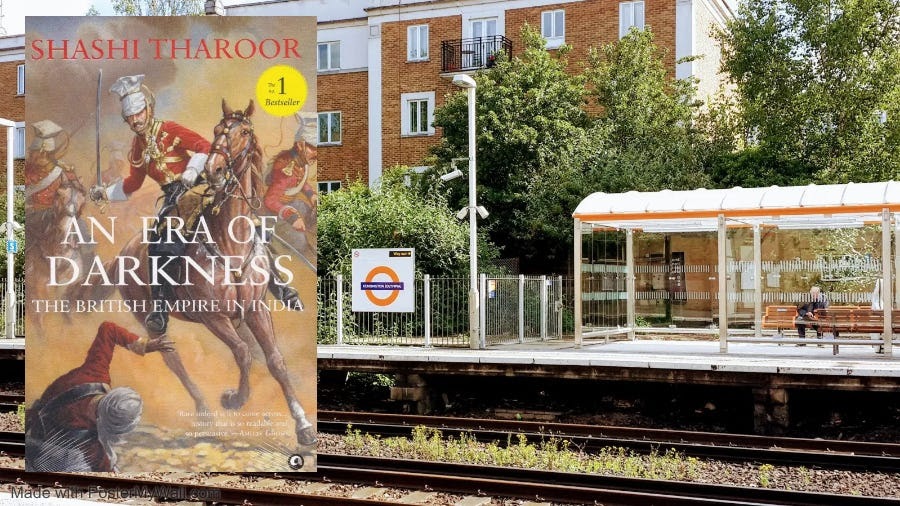
Moving from personal to historical, pick up Shashi Tharoor’s scathing denunciation of colonialism. An Era of Darkness grew out of the tremendous response to an Oxford Union debate Tharoor took part in, where he demanded monetary damages from the British government for the havoc they wrought over years of pillage and plunder.
For a more detailed look at the political machinations and the web of greed and deceit that did the Indian subcontinent in, read William Dalrymple’s The Anarchy.
Book 3 of 4: Societal Independence
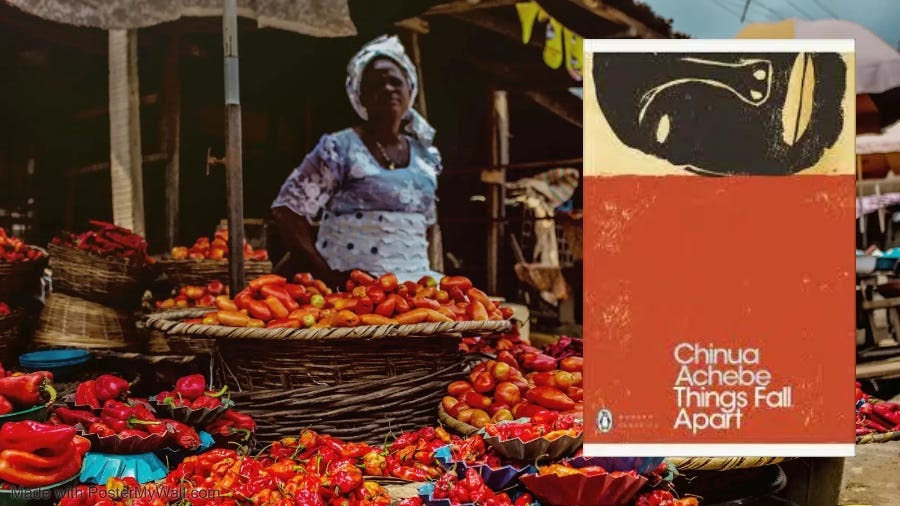
Moving across the world, from India to Africa, read Chinua Achebe’s Things Fall Apart to see the problems of newly independent nations. The novel reveals how such problems arise, not from the ‘naturally weak’ character of the ‘native’, but instead from the systematic destruction that characterises colonisation. “The white man is very clever. He came quietly and peaceably with his religion. We were amused at his foolishness and allowed him to stay. Now he has won our brothers, and our clan can no longer act like one. He has put a knife on the things that held us together and we have fallen apart” says one of the lead characters.
Book 4 of 4: Cultural Independence
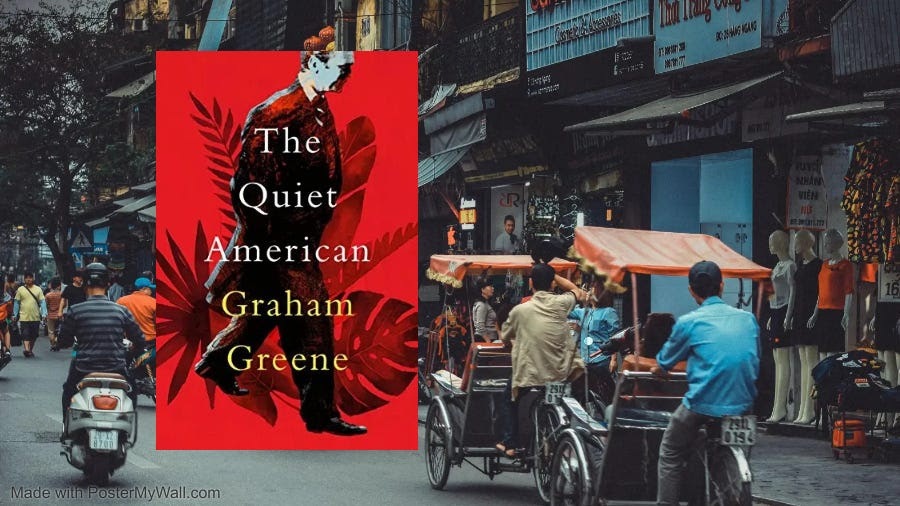
And finally to South East Asia, to Vietnam. Here, in the 1950’s novelistic world of The Quiet American by Graham Greene, two cultures battle over a third, much like what happens in the conflicts we are embroiled in today, like Iraq and Afghanistan. The novel brilliantly braids together the personal and the political, as its characters serve as emblems of the American, European and Asian ways. Independence, when it finally arrives, is fractured in a way that is unforgettably reflected, in yet another fabulous novel, a favourite of my book club – the Pulitzer prize-winning The Sympathizer.
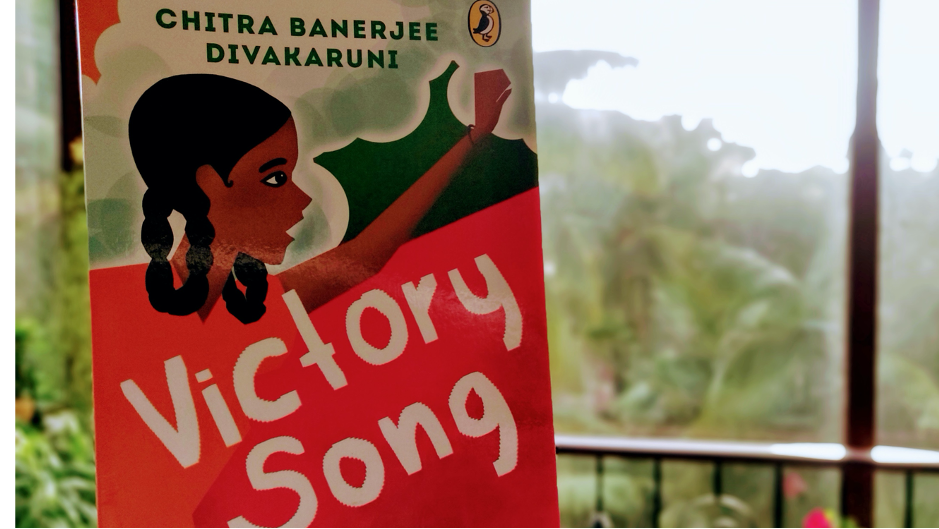
This little know gem has long been a favourite in our family. Victory Song tells the story of twelve-year-old Neela who must rescue her freedom fighter father before he is deported to the Andaman Islands. Racy, pacy and fully fascinating!
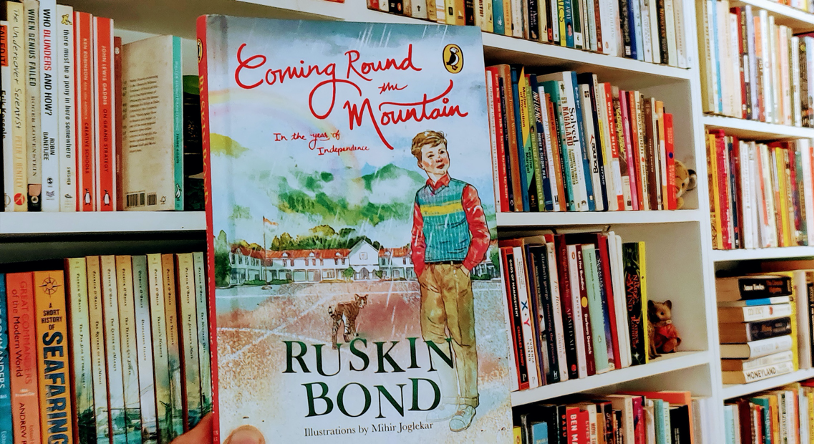
Ruskin Bond is always enthralling. In this memoir, he talks about India’s independence and what it means for him, as an English child in India. He describes events that are far more unsettling than anything that happened to him, like hearing of riots and of the Partition of India – and of watching boarding school friends like Azhar having to cross the border to Pakistan. I specially loved Coming Round the Mountain for its beautiful illustrations by Mihir Joglekar.
And finally, moving continents, from Asia and Africa, here is a much-loved poem from America, celebrating the horseman who heralded independence – in the legend of Paul Revere
“A hurry of hoofs in a village-street,
A shape in the moonlight, a bulk in the dark,
And beneath from the pebbles, in passing, a spark
Struck out by a steed that flies fearless and fleet:
That was all! And yet, through the gloom and the light,
The fate of a nation was riding that night;
And the spark struck out by that steed, in his flight,
Kindled the land into flame with its heat.”
Until next week then, Happy Reading!
Sonya Dutta Choudhury is a Mumbai-based journalist and the founder of Sonya’s Book Box, a bespoke book service. Each week, she brings you specially curated books to give you an immersive understanding of people and places. If you have any reading recommendations or suggestions, write to her at [email protected]
The views expressed are personal
This Independence Day, get Flat 50% Off on Annual Subscription Plans
Enjoy Unlimited Digital Access with HT Premium
“If I were a guy, I wouldn’t be writing this”, says Serena Williams, in a resignation note that has gone viral.
Everything that Williams says, bears reading about, as we engage with political, social and cultural independence and this most important of all – biological independence.
On the occasion of India’s 75th Independence anniversary, here are four books from different parts of the world, that investigate the contradictory pulls and pushes of independence.
Book 1 of 4: Competitive independence vs Biological independence
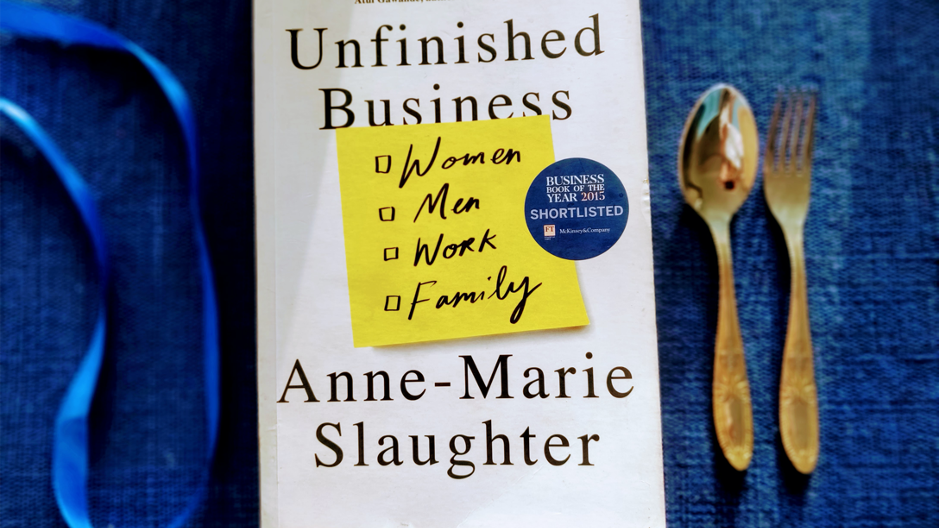
Serena Williams sent me back to Anne-Marie Slaughter, who made the news in 2012, by famously declaring women couldn’t have it all – that financial independence came at the cost of biological independence. “Something happens, and the carefully constructed balance suddenly tips. For many women, that something is the birth of a second child. Law firms and businesses are well acquainted with the “second child syndrome” where suddenly a talented woman who was making it work with one child, can no longer work full-time or at the same job with two children” she says in Unfinished Business. Slaughter zones onto the zeitgeist of today’s times, when she identifies two competing drives for women – that of competition versus caregiving – a contradiction that emerges sharply and dramatically in the Serena Williams story. Slaughter adds to her analysis, with practical solutions – read her book to discover these.
Book 2 of 4: Economic Independence

Moving from personal to historical, pick up Shashi Tharoor’s scathing denunciation of colonialism. An Era of Darkness grew out of the tremendous response to an Oxford Union debate Tharoor took part in, where he demanded monetary damages from the British government for the havoc they wrought over years of pillage and plunder.
For a more detailed look at the political machinations and the web of greed and deceit that did the Indian subcontinent in, read William Dalrymple’s The Anarchy.
Book 3 of 4: Societal Independence

Moving across the world, from India to Africa, read Chinua Achebe’s Things Fall Apart to see the problems of newly independent nations. The novel reveals how such problems arise, not from the ‘naturally weak’ character of the ‘native’, but instead from the systematic destruction that characterises colonisation. “The white man is very clever. He came quietly and peaceably with his religion. We were amused at his foolishness and allowed him to stay. Now he has won our brothers, and our clan can no longer act like one. He has put a knife on the things that held us together and we have fallen apart” says one of the lead characters.
Book 4 of 4: Cultural Independence

And finally to South East Asia, to Vietnam. Here, in the 1950’s novelistic world of The Quiet American by Graham Greene, two cultures battle over a third, much like what happens in the conflicts we are embroiled in today, like Iraq and Afghanistan. The novel brilliantly braids together the personal and the political, as its characters serve as emblems of the American, European and Asian ways. Independence, when it finally arrives, is fractured in a way that is unforgettably reflected, in yet another fabulous novel, a favourite of my book club – the Pulitzer prize-winning The Sympathizer.

This little know gem has long been a favourite in our family. Victory Song tells the story of twelve-year-old Neela who must rescue her freedom fighter father before he is deported to the Andaman Islands. Racy, pacy and fully fascinating!

Ruskin Bond is always enthralling. In this memoir, he talks about India’s independence and what it means for him, as an English child in India. He describes events that are far more unsettling than anything that happened to him, like hearing of riots and of the Partition of India – and of watching boarding school friends like Azhar having to cross the border to Pakistan. I specially loved Coming Round the Mountain for its beautiful illustrations by Mihir Joglekar.
And finally, moving continents, from Asia and Africa, here is a much-loved poem from America, celebrating the horseman who heralded independence – in the legend of Paul Revere
“A hurry of hoofs in a village-street,
A shape in the moonlight, a bulk in the dark,
And beneath from the pebbles, in passing, a spark
Struck out by a steed that flies fearless and fleet:
That was all! And yet, through the gloom and the light,
The fate of a nation was riding that night;
And the spark struck out by that steed, in his flight,
Kindled the land into flame with its heat.”
Until next week then, Happy Reading!
Sonya Dutta Choudhury is a Mumbai-based journalist and the founder of Sonya’s Book Box, a bespoke book service. Each week, she brings you specially curated books to give you an immersive understanding of people and places. If you have any reading recommendations or suggestions, write to her at [email protected]
The views expressed are personal
This Independence Day, get Flat 50% Off on Annual Subscription Plans
Enjoy Unlimited Digital Access with HT Premium
